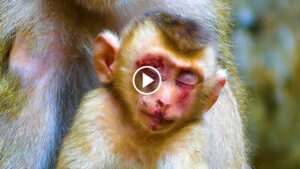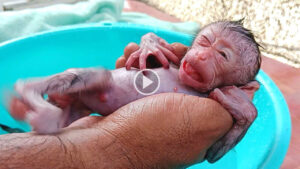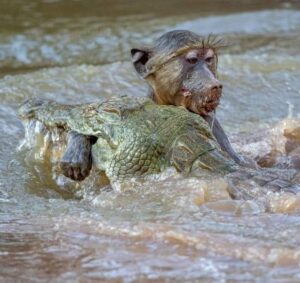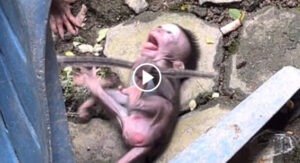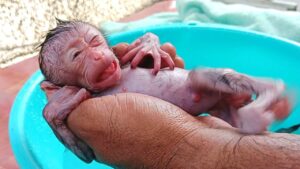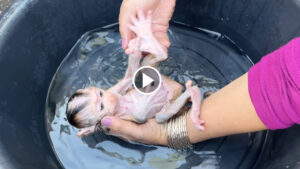Bathing and caring for a baby monkey requires careful attention to both hygiene and emotional well-being, as these little primates are highly sensitive and need special care.
### Bathing a Baby Monkey
1. **Use Lukewarm Water**: Make sure the water is at a comfortable, lukewarm temperature. Baby monkeys are sensitive to cold, so avoid using water that’s too hot or cold.
2. **Gentle Soap**: Use a mild, fragrance-free baby soap or a veterinarian-recommended shampoo to avoid irritating the monkey’s sensitive skin. Avoid harsh chemicals.
3. **Gentle Bathing Process**:
– **Prepare the Space**: Use a shallow basin or a sink for the bath. Make sure the monkey feels secure by holding it gently.
– **Wet the Fur**: Slowly pour water over the monkey’s body using a cup or your hand. Avoid getting water directly in the eyes, nose, or ears.
– **Clean Gently**: Lather the soap in your hands and gently rub it onto the monkey’s body. Pay attention to areas like the tail, hands, and feet, but be gentle with their delicate skin and fur.
– **Rinse Carefully**: Use clean water to thoroughly rinse away all soap. Any residue left can irritate the skin.
4. **Drying**:
– Use a soft towel to gently pat the baby monkey dry. Make sure to dry them thoroughly to prevent chills.
– You can use a hairdryer on a low, warm setting if the monkey is comfortable with it, but make sure not to scare them or get too close to their skin.
### General Care for a Baby Monkey
1. **Diet**:
– Baby monkeys usually rely on milk from their mother or a substitute formula if they are orphaned. Consult a vet for the right formula and feeding schedule.
– As they grow, introduce solid foods like fruits, vegetables, and small insects under a vet’s guidance.
2. **Emotional Care**:
– **Bonding**: Monkeys are social animals and need a lot of attention and care. Spend time holding and interacting with them to mimic the bond they would have with their mother.
– **Comfort**: Provide soft blankets or plush toys to simulate the warmth and security they would feel in the wild.
3. **Hygiene**:
– Clean their living area regularly to prevent infections and parasites.
– Regularly check their fur and skin for any signs of irritation, parasites, or injuries.
4. **Health and Veterinary Care**:
– Schedule regular check-ups with a vet who specializes in primates. Baby monkeys are prone to certain illnesses, so it’s important to monitor their health closely.
– Vaccinations and parasite control may be required, depending on the environment.
5. **Socialization**:
– Monkeys are highly social and need stimulation. Engage them with toys and puzzles to keep their minds active.
– If possible, allow them to interact with other monkeys or animals to prevent loneliness.
By ensuring proper care, diet, and social interaction, you can help a baby monkey grow into a healthy and happy adult. Always consult with an expert for the best care practices for their specific needs.
